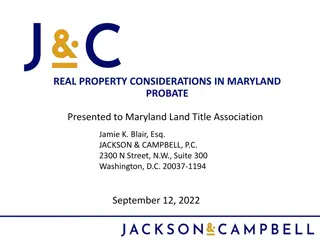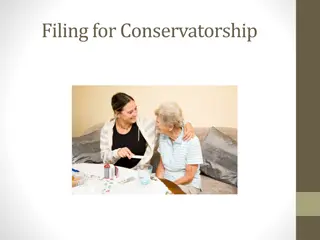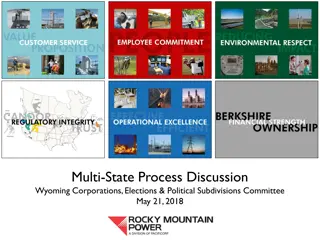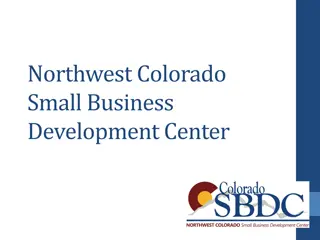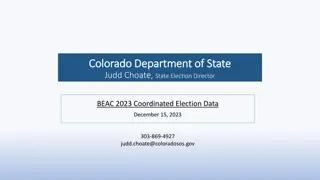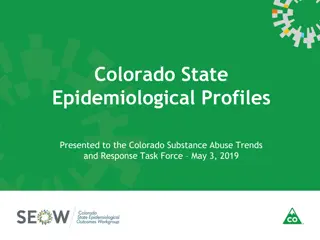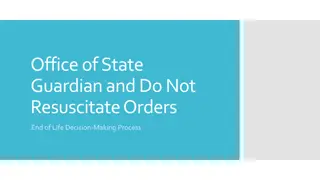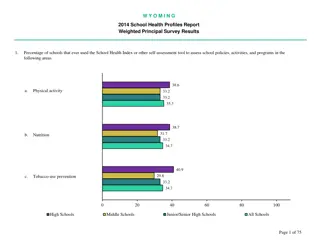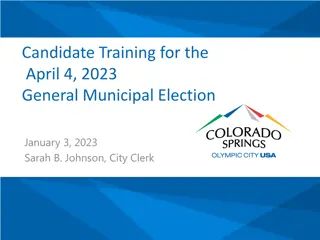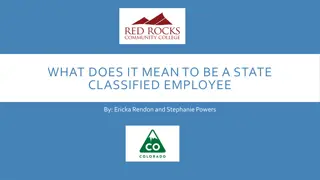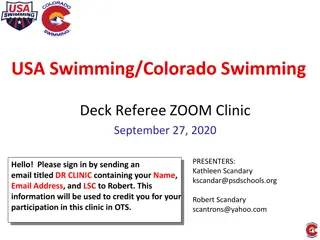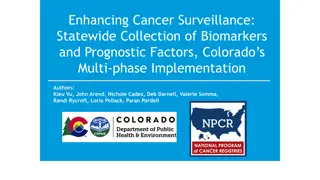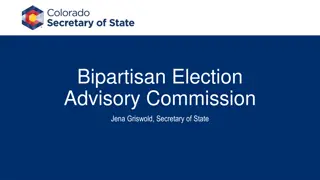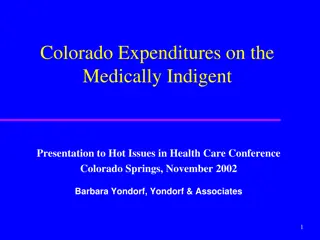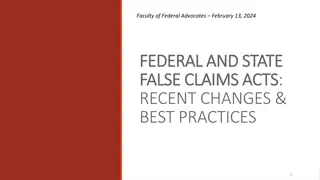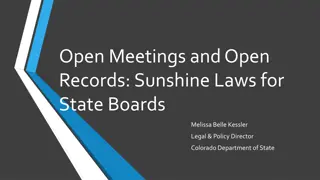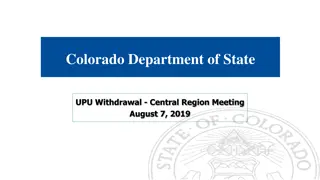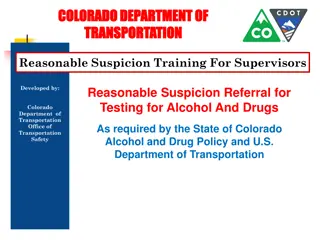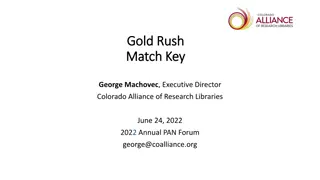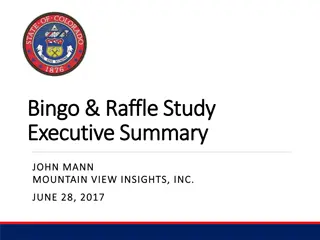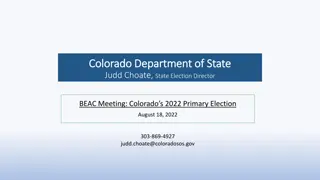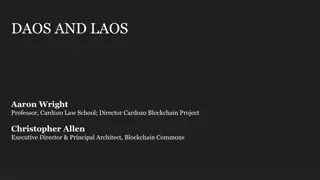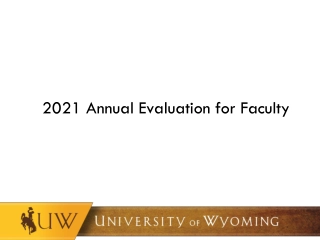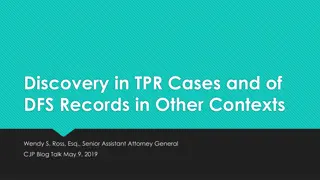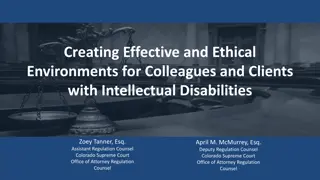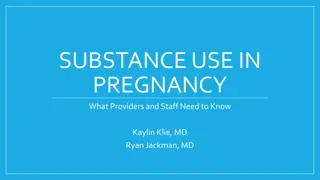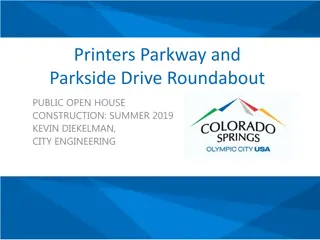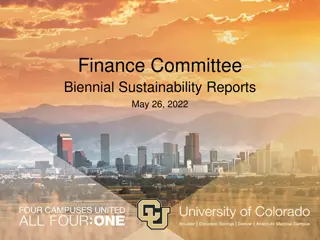Probate in Wyoming and Colorado: Essential Guide for Landmen
Probate is the legal process of transferring a deceased person's property to a living individual. Whether probate is necessary depends on how assets were owned at the time of death. In Wyoming and Colorado, probate proceedings vary based on different ownership structures. Establishing the death of a joint tenant or life tenant involves specific procedures in each state. Wyoming probate proceedings include formal probate, summary proceedings, determination of heirship, and ancillary proceedings. Formal probate in Wyoming requires a supervised procedure when estate assets exceed $200,000.
Download Presentation

Please find below an Image/Link to download the presentation.
The content on the website is provided AS IS for your information and personal use only. It may not be sold, licensed, or shared on other websites without obtaining consent from the author. Download presentation by click this link. If you encounter any issues during the download, it is possible that the publisher has removed the file from their server.
E N D
Presentation Transcript
Probate in Wyoming and Colorado : What Every Landman Needs to Know By: Daniel Franklin Cowan Hubbert & Franklin
What is Probate? Probate generally refers to the court-supervised process of legally transferring property from a dead person to a living person
When is Probate Necessary? Whether or not probate proceedings are necessary to transfer title depends on how the assets were owned at the time of death Probate Required: Sole ownership, Tenants in Common Probate required even if the Decedent had a will! Probate Unnecessary: Joint Tenancy, Life Estate, Tenancy by the Entireties (Wyoming Only), etc.
Evidencing Death of Joint Tenant or Life Tenant Wyoming: Under Wyoming law, a party may establish the death of an individual by filing in the county records a certified copy of a death certificate together with the affidavit described in WYO. STAT. ANN. 2-9-102 Colorado: Under Colorado law, a party may establish the death of an individual by filing in the county records a certified copy of a death certificate together with the supplementary affidavit described in COLO. REV. STAT. 38-31-102
Wyoming Probate Proceedings: Probate Proceedings: A. Formal Probate (Wyo. Stat. 2-6-101 through 2-7-815) B. Summary Proceedings (Wy. Stat. 2-1-205) C. Determination of Heirship Proceedings (Wy. Stat. 2-9-201 through 2-9-204) D. Ancillary Proceedings (Wyo. Stat. 2-11-201 and 2-11-202)
Formal Probate Overview A Wyoming supervised probate procedure is required when the Wyoming probate estate assets are in excess of $200,000 regardless of whether the decedent was a resident of Wyoming Venue is proper in the county in which the decedent was a resident at the time of their death or, if the decedent was not a resident of Wyoming, in the county in which any part of the estate is located
Formal Probate Overview cont. Formal probate proceedings require: Appointment of a personal representative Appointed by Will or by the court if decedent had no will. During the probate process, the personal representative will be required to file certain reports and accountings with the court, as well as notices to creditors of the estate. The process has a number of deadlines, and generally requires the assistance of legal counsel
Initiating Formal Probate Proceedings A petition for a probate of a will is made pursuant to Wyo. Stat. 2-6-201 The petition must include: (1) facts related to the court s jurisdiction; (2) statement as to whether the executor named in the will consents to act; (3) the names, ages and residences of the devisees of the decedent; (4) the probable value and character of the decedent s property; and (5) the name of the person seeking letters testamentary Once the petition is filed, the court will hold a hearing to admit the will to probate. If no protest of the will is received, the property will be distributed as prescribed therein after statutory requirements have been met
Formal Proceedings: Pros and Cons Effective for large estates Most expensive Wyoming probate proceeding Fees include: Filing fees, personal representative fees, and attorney fees No privacy Unless a court seals filings for good cause, probate proceedings are public records, potentially subjecting a family s private dealings to public scrutiny Takes longer than simpler forms of estate administration
Summary Proceedings The Summary Procedure for distribution is available when: (1) the value of the estate does not exceed $200,000 (as valued as of the date of the decedent s death); (2) at least thirty (30) days have passed since the decedent s death; and (3) no application for the appointment of a personal representative has been granted or is pending in any county in the state.
Initiating Summary Proceedings Overview: Person claiming to be the distributee of decedent files an application in the County where the property is located at least 30 days after decedents death. The application is accompanied by a sworn affidavit stating certain facts, including that the estate is worth less than $200,000 and the legal basis upon which the distribute claims entitlement to such property. After mandatory notices have been provided, the court can enter a decree distributing the property.
Summary Proceedings: Pros and Cons Concluded faster than formal probate proceedings Cheaper than formal probate proceedings They cannot be used to distribute real property from estates larger than $200,000
Determination of Heirship Proceeding Should be used when it is discovered long after the death of an intestate decedent that the intestate decedent owned real property in the State of Wyoming. Overview When more than 2 years have elapsed since a decedent s death, heirs or others whom derived title from the deceased may file a petition for the determination of heirship in the county where the deceased resided at the time of their death, or if out of state, in the county in which the real property is located. Upon filing of the petition, notice shall be mailed to the surviving spouse (if any), the heirs of the decedent and all reasonably ascertainable creditors of the decedent. After a hearing, if all statutory requirements have been met, the court will issue a decree determining who received title to the deceased s property.
Determination of Heirship: Pros and Con s Faster than formal probate proceedings Cheaper than formal probate proceedings Can be used on estates larger than $200,000 Higher costs than Summary Procedures
Ancillary Proceedings Unlike the Uniform Probate Code states, Wyoming does not offer an informal ancillary administration. Summary Procedures should be used when available.
Foreign Wills Foreign Wills Wyo. Stat. 2-11-101 through 2-11-105 provides a procedure for the filing of a foreign will in Wyoming. Overview: A copy of the will is filed in any district court in which some or all of the decedent s Wyoming estate lies If the court approves the will as the last will and testament of the deceased, the will has the same effect as if originally proved and allowed in the court. After the foreign will is admitted to probate, the same procedures for formal estate administration of a domestic will are applied.
Foreign Probate Foreign Probates Wyo. Stat. 2-11-201 and 2-11-202 provide an ancillary administration procedure for Wyoming estates that do not exceed the value of $200,000. Summary: Petitioner files a petition with the appropriate Wyoming District Court (see Wyo. Stat. 2-2-102) setting forth the facts together with certified copies of the: (1) foreign state s probate petition; (2) foreign state s order of appointment; (3) foreign state s notice to creditors; and (4) the foreign state s inventory that must also include the Wyoming property The foreign state s court must also issue an order authorizing the person representative to sell or otherwise dispose of the Wyoming property After appropriate notice and if no objection to the petition is made, the judge enters an order admitting the proceedings in the estate and authorizing distribution of the Wyoming property
Ancillary Proceedings: Pros and Cons Can be faster and cheaper than formal probate proceedings Often proceedings in the other jurisdiction are informal do not include a final decree of distribution. If a final decree or other order authorizing the person representative to dispose of the Wyoming property, Ancillary procedures are unavailable
Colorado Probate Proceedings: Probate Proceedings: Formal Probate (C.R.S. 15-12-401 et seq.) Informal Probate (C.R.S. 15-12-301 et seq.) Ancillary Proceedings (C.R.S. 15-13-101 et seq.) Determination of Heirship Proceedings (C.R.S. 15-12-1302)
Formal Probate Proceedings Commenced by filing a verified petition The formal petition will request either a determination that the decedent left a valid will or a determination of the decedent s heirs The petition may include a request to appoint a personal representative
Formal Probate Proceedings cont. Notice of the petition and hearing date must be provided to the following: surviving spouse; children; other heirs; any devisee and nominated personal representative in any will; any presently serving personal representative; and any person who has demanded notice of the proceeding. Notice by publication must be provided to all persons whose addresses are unknown.
Formal Probate Proceedings cont. After hearing, the probate court will issue a formal testate or intestate order. The order is binding on all persons who received notice of the proceeding.
Informal Probate Proceedings Commenced by filing a verified application with the Registrar of the court no earlier 120 hours after the decedent s death The application may request probate of a will for a testate estate or the appointment of a personal representative for an intestate estate If the application is for a testate estate, the will must have been previously lodged with the court or must be filed simultaneously with the application
Informal Probate Proceedings cont. If the Registrar is not satisfied by the contents of the application, the Registrar may decline the application and require a formal proceeding If the Registrar makes the required determinations (C.R.S. 15-12-303), informal orders will be issued Informal orders are binding unless superseded by a formal order
Formal vs. Informal Proceedings: Pros and Cons The circumstances of each case determines which type of proceeding is the most beneficial Informal proceedings are usually less expensive and concluded quicker than formal proceedings
Ancillary Proceedings If probate proceedings were not opened in Colorado but a probate proceeding is presently open in another jurisdiction, ancillary probate proceedings can be commenced to distribute Colorado property Initiated by: Filing authenticated copies of the foreign jurisdiction s appointment documents in the county where the land is located Once the filing requirements of C.R.S. 15-13-204 are satisfied, the foreign personal representative will be authorized to act with the same powers that a local personal representative would be eligible to exercise
Determination of Heirship Another option to confirm marketable title in heirs when the previously mentioned proceedings are unavailable or unpractical Benefits: Inclusion of many successive estates in one proceeding, so long as one or more years has passed since all the Decedents deaths (C.R.S. 15-12-1302) The process is relatively simple. An order can be obtained without having to go to court if Petition is not contested Interested persons, including lessees of heirs/devisees may independently file the petition
Determination of Heirship cont. To initiate the process, interest parties must: File petition Provide notice of petition and hearing to all interested persons and publish notice of the hearing by publication in a newspaper where the property is located (3 consecutive weeks, final publication being 35 days before hearing) Hearing Order: Once the Order is signed by the Court, file a copy of the Order with the Clerk and Recorder s Office in the County where the property is located.
Determination of Heirship Cont. Note: Decrees issued pursuant to DOH proceedings can be challenged! C.R.S. 15-12-1306 provides that a decree entered pursuant to this part shall be conclusive as to the rights of heirs and devisees in the property described in the order from the date of its entry. Any person claiming to be an heir or devisee, or the grantee or successor in interest of an heir or devisee, not served with notice by personal service or by mail, and who did not admit, accept, or waive service, or consent to the granting of the petition or enter a personal appearance, may petition to reopen the proceeding and modify the decree within one year after the entry thereof, but not thereafter
Questions? Email me: daniel@cowanhubbert.com


